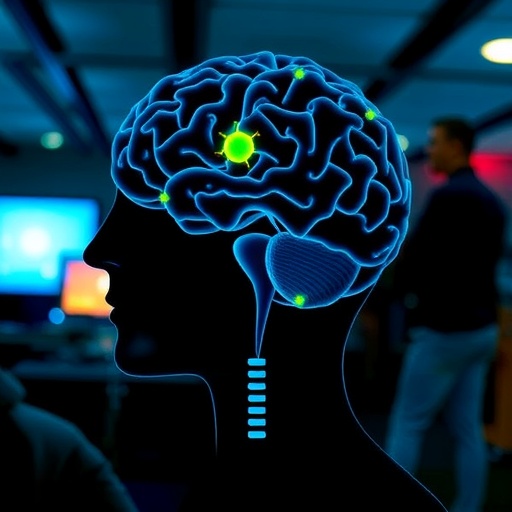In the everyday clamor of a lively café, the challenge of understanding a conversation amid competing voices is all too familiar. While many might instinctively consider hearing aids to overcome such obstacles, intriguing new research reveals a more complex relationship between our ability to perceive speech in noisy environments and our cognitive capacity. This groundbreaking study, led by Dr. Bonnie Lau of the University of Washington, illuminates how intelligence plays a pivotal role in processing auditory information—even when hearing is clinically normal.
The research encompassed three distinct participant groups: individuals diagnosed with autism spectrum disorder, those with fetal alcohol syndrome, and a group of neurotypical adults serving as controls. Each participant had clinically typical hearing confirmed via audiology screening, ensuring that any difficulties in speech perception were not attributed to peripheral hearing impairment. What unified these differing groups was the significant correlation between their cognitive abilities and their proficiency in deciphering speech amidst background noise.
Dr. Lau, a research assistant professor specializing in otolaryngology-head and neck surgery, oversees the Land Lab at the University of Washington, focusing on auditory brain development. She emphasizes that the study’s implications stretch beyond diagnostic labels, underscoring cognition as a universal factor in how brains handle the auditory complexity of real-world environments. The publication of the findings is slated for September 24, 2025, in the open-access journal PLOS One.
Though this pilot study featured fewer than 50 participants—a limitation noted by the researchers—the insights lay critical groundwork for redefining how speech-perception difficulties are understood and addressed. Cognitive ability, encompassing verbal and nonverbal intelligence as well as perceptual reasoning, was consistently linked to participants’ performance on challenging listening tasks. This suggests that intellectual faculties influence not only how we think and learn but also how we filter and interpret overlapping acoustic signals.
The test protocol was as innovative as it was rigorous. Participants donned headphones and engaged with a multitalker speech perception challenge designed to mimic the complexity of social settings like classrooms or bustling public venues. They were instructed to focus on a primary male speaker while ignoring two simultaneous background voices—varying by gender composition—each uttering sentences starting with a call sign, followed by a color and a number (e.g., “Ready, Eagle, go to green five now”). The task required selecting an on-screen colored numbered box corresponding to the primary speaker’s instructions, with the background noise volumes escalating incrementally.
This setup demands multilayered auditory processing: segregating speech streams, sustained selective attention, and suppression of irrelevant noise. Furthermore, the listener engages intricate linguistic mechanisms, parsing phonemes and syllables to extract semantic meaning, while social cognitive skills facilitate contextual understanding and appropriate nonverbal responses. Collectively, these processes impose a high cognitive load, particularly when speech signals compete with dynamic, overlapping sounds.
The results were compelling. Across all groups, higher IQ measures predicted superior multitalker speech perception capabilities. This held true regardless of diagnostic category, underscoring that intellectual ability transcends traditional neurodivergent labels in shaping auditory processing. For individuals with autism or fetal alcohol syndrome—conditions often accompanied by varying cognitive profiles—this finding demystifies common complaints of difficulty hearing amid noise despite normal hearing sensitivity.
From a neuroscientific perspective, the findings highlight the central role of top-down cognitive control in auditory scene analysis. Rather than a mere sensory deficit, speech-in-noise difficulties may stem from challenges in executive functions like attention modulation, working memory, and auditory discrimination. These functions enable the brain to “tune in” to relevant sounds and disregard distractions, a skill vital for communicative success in everyday life.
Dr. Lau challenges prevailing misconceptions that attribute such listening struggles solely to peripheral hearing loss. Her team’s data affirm that “you don’t have to have a hearing loss to have a hard time listening in a restaurant or any other challenging real-world situation.” This reframing invites clinicians and educators to consider cognitive assessments and environmental adaptations alongside traditional audiological evaluations.
The study further advocates for tailored interventions to optimize communication for neurodivergent individuals and those with lower cognitive ability. Practical strategies could include preferential seating arrangements in classrooms, enhancing signal-to-noise ratios, or employing hearing-assistive technologies to mitigate auditory challenges. Such accommodations resonate with the researchers’ call to acknowledge cognitive diversity in auditory processing and design inclusive auditory environments.
Collaborations underpinning this research span multidisciplinary expertise, from the UW Autism Center and the Institute for Learning and Brain Sciences to diverse fields including bioengineering, epidemiology, radiology, pediatrics, and speech and hearing sciences. The involvement of the University of Michigan’s Department of Otolaryngology – Head and Neck Surgery adds further depth, reflecting the study’s integrative approach to understanding the intersection of cognition, hearing, and neurodiversity.
Looking to the future, Dr. Lau emphasizes the need for larger-scale studies to validate these findings and deepen our understanding of the neural mechanisms involved. Such research may revolutionize auditory healthcare by integrating cognitive profiles into diagnostics and personalized treatment plans, ultimately improving quality of life for countless individuals facing the often-overlooked complexities of listening in noisy settings.
This study represents a paradigm shift in auditory neuroscience and cognitive research, recognizing intellect not just as a measure of problem-solving but as a fundamental component of how we engage with and interpret the world’s rich auditory landscape. For everyone struggling to catch a word in a noisy room, the message is clear: hearing is more than ears—it is a cognitive symphony in which mind and brain play equally critical roles.
Subject of Research: People
Article Title: “The relationship between intellectual ability and auditory multitalker speech perception in neurodivergent individuals”
News Publication Date: 24-Sep-2025
Keywords
Auditory neuroscience, speech perception, cognitive ability, neurodiversity, autism, fetal alcohol syndrome, multitalker environments, hearing impairment, auditory processing, selective attention, speech-in-noise, assistive listening technology
Tags: auditory brain development studiesautism spectrum disorder and listening challengescognitive capacity and speech perceptionDr. Bonnie Lau research findingsfetal alcohol syndrome and auditory perceptionhearing aids and cognitive processingimpact of intelligence on auditory processingimplications of cognitive abilities in communicationIQ and listening skillsneurotypical adults and noise distractionovercoming background noise in conversationsunderstanding conversations in noisy environments





